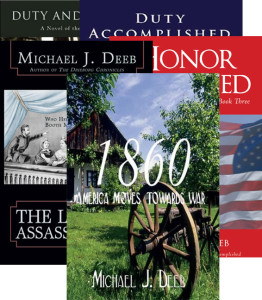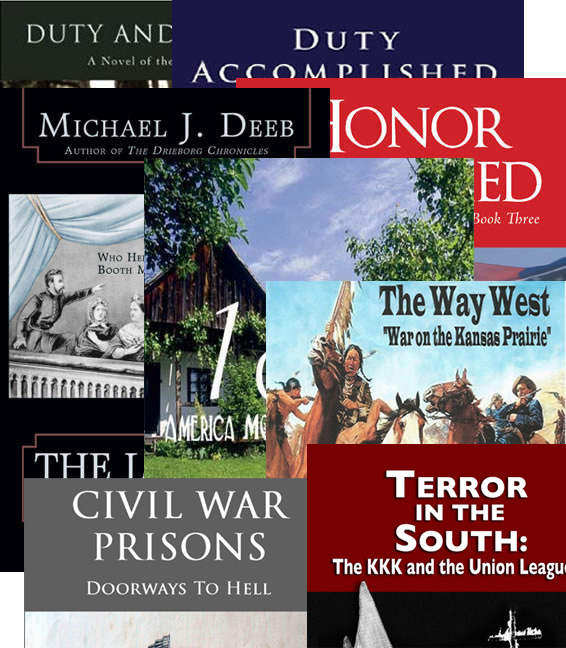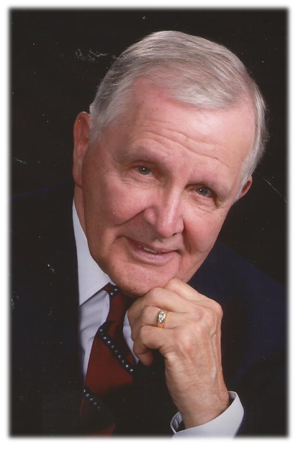1860 ELECTION AFTERMATH
FARMER AND HIS SON DISCUSS SECESSION
It was almost Christmas of 1860 in Lowell, Michigan. Jacob Drieborg and his son, Michael were in town this Saturday morning. Michael had just returned from the town’s library and joined his father at the town’s grain elevator.
“Papa,” he said excitedly. “Did anyone at the grain elevator tell you what people in South Carolina did last week?”
“Yes, I heard, Michael. One of da farmers had heard da news from Mr. Stafford. And a copy of his Lowell weekly paper was at da elevator. So, I read da article about it while I was waiting for our grain to be ground.”
“I read about it too when I was just at the library. There was a big article about it in the Grand Rapids Eagle newspaper. What do you think of it, Papa?” Mike asked.
Jacob Drieborg was a good two inches over six feet tall. Born in the Catholic party of Holland, he came to the United States as a teenager some twenty years earlier. He worked off the cost of his passage on his uncle’s farm before he married and started a farm of his own. Michael was his oldest child.
“Here, son,” his father told him. “Help me load dese sacks on our wagon. We can talk of politics on da way home.”
“But, Papa; the rest of the South may leave, too. So, what South Carolina did is very important.” An impatient seventeen year old, Michael wanted to talk about this event, right then. He was also blue eyed and blond of hair and a virtual physical clone of his father. But, he knew enough to follow his instructions.
instructions.
“Dat may be, Michael. But, so is loading dese sacks on da wagon. And, so far, I’m da only one doing it. And, we have work to do back home. Dat’s important, too.
“Besides,” Jake continued. “Will anything we have to say change anything? I don’t think so. And, remember, our cows will not like our being late milking dem on time. So, help me here, son. We talk on day way home, eh?”
“Yes, sir.”
The Drieborg farm wagon was not far down the road when Mike brought up the subject again.
“So, Papa,” he began. “What do you think about South Carolina leaving the Union?”
His father chuckled, looked at his son and admitted,, “When I first heard of it back in town, Michael, I must confess dat I had a hard time even placing just where South Carolina is located. I think it’s on da Atlantic Ocean side and south of Washington City. Is dat right?”
“Pretty close, Papa,” Mike told his father. “Actually, North Carolina is between that state and Washington City. To the west is Tennessee and to the south is Georgia. Our teacher told is in school, that according to the last census, there are more Negroes in South Carolina than white people. He also told us that the farmers of that state export a lot of cotton and rice and import a lot of grain and manufactured goods from the northern states. The people of South Carolina are also big users of New England-owned ships and northern banks, too.”
“Thank you for all dat information, Michael. Do you think dey will stop exporting cotton or rice?”
“I can’t imagine why they would do that. Their entire economy is set up to produce agricultural goods for export. That’s why the landowners there own all those slaves.”
“I understand, son. Now, I have another question,” Jake said. “Now dat dose people live in another country, do you think dey will still need to buy da grain and manufactured goods from da North?”
“Yes, I would think they would, Papa.” Michael answered.
“And, will dey still use da North’s ships and borrow money from Northern banks?” Jake Drieborg continued.
” I don’t see why the people of South Carolina would stop, Papa.”
“Den, tell me, Michael,” Jake continued. “Why is it so important to us if South Carolina stays in da Union?”
“I don’t know, actually, how to answer that question, papa.”
But, Michael’s father wasn’t done with his questions. “Another thing; now dat South Carolina is gone from da Union, do we in da North have to help slave-owners recover da slaves who run away to da United States?”
“I wouldn’t think so, Papa,” Michael answered.
“So, maybe it’s a good thing for us and da people of South Carolina, dat dey left da Union.”
“Maybe it is, Papa.” Mike admitted. “But, it doesn’t seem right to me, just the same.”
“We shall see, son,” Jake Drieborg predicted. “We shall see.”
The above is an excerpt from the historical novel, 1860: America Moves Toward War


 A Great Read! I couldn’t put this book down once I got started. The detail was great and I really like the main character, Michael. Knowing that so much research went into this book made it exciting to read!
A Great Read! I couldn’t put this book down once I got started. The detail was great and I really like the main character, Michael. Knowing that so much research went into this book made it exciting to read!